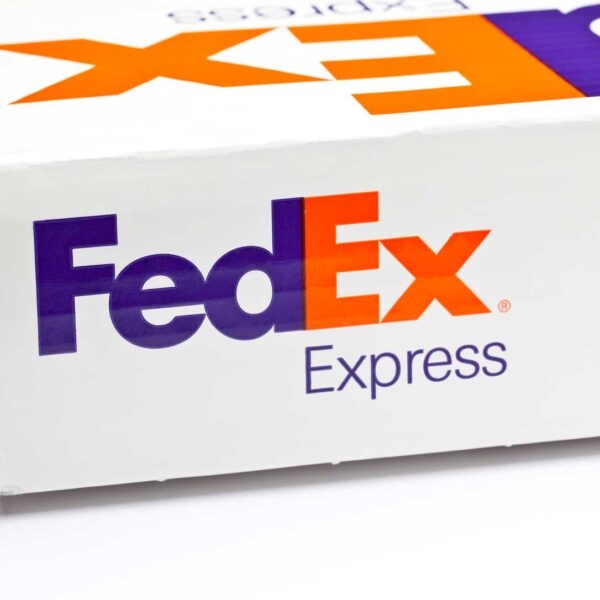

Hello and welcome to Eye on AI. In this edition…Big Tech is increasing AI spending… OpenAI drops its foundry ambitions… Wall Street boosts AI infrastructure… and AI models give inaccurate voting info.
Quarterly earnings are in for Microsoft, Meta, and Google, with Amazon’s on the way tonight. Those who reported so far made one thing clear: They’re about to amp up spending on AI even more. Of course, most of this investment will go to infrastructure like Nvidia chips and data centers. Nvidia isn’t set to announce its Q3 earnings for another month, but it will be another telling one to watch for the pulse on the AI boom.
Meta
Meta said it expects capital expenditures to continue to grow significantly in 2025 as it accelerates its infrastructure investments. The company raised its capital expenditures guidance for 2024 to between $38 billion and $40 billion, up from $37 billion to $40 billion.
“Our AI investments continue to require serious infrastructure,” CEO Mark Zuckerberg said on the earnings call yesterday.
Meta is currently working on the next version of its Llama model and is continuing to position itself as an AI company—all while relying on ad revenue from its social media platforms to foot the bill. To bridge the gap, Zuckerberg framed AI as a win for its core ad business. He said its advancements in AI are making it possible to better predict what content users want to see, leading to 8% and 6% increases in time spent on Facebook and Instagram, respectively.
Microsoft
Microsoft posted positive growth for its AI business, reporting that it’s on track to surpass $10 billion in annual revenue run rate in the current quarter and will be its fastest product category to reach that milestone yet. Additionally, the company disclosed details of its investment in OpenAI for the first time in a quarterly regulatory filing, painting a picture of massive losses on the other side of its AI bet.
In the filing, Microsoft stated it’s made $13 billion in total commitments to OpenAI. This, however, didn’t include the additional $750 million the company reportedly invested in OpenAI’s latest funding round at the beginning of October (the filing quarter ended Sept. 30).
Besides its overall investment, Microsoft also disclosed the toll its bankrolling of OpenAI is taking on its profits. The company said that losses from its stake in OpenAI were part of the reason it had a $683 million expense on its equity investments for the quarter.
On AI, Google touted how the boom has boosted its cloud business. But even more interestingly, CEO Sundar Pichai said AI is writing over 25% of new code at the company, but engineers still review the work before using it.
While the rest of the AI-related earnings statements from the companies were somewhat predictable, I would’ve loved to hear more detail about the programming by AI. Google did not respond to my questions about what this looks like in process, including what types of coding projects it’s found AI is best suited for (or not so great at) and if it’s shipped anything coded by AI yet. AI is increasingly not only the product, but also making the products too. On future earnings calls, will we hear that increased efficiency of AI coding (or layoffs of expensive engineers) are boosting profits?
And with that, here’s more AI news.
Sage Lazzaro
[email protected]
sagelazzaro.com
How will your business adapt in the face of a shifting global landscape? Join global executives and policy leaders at the Fortune Global Forum in New York City Nov. 11-12 to discuss AI, the future of democracy, rising geopolitical tensions, and more. Request your invite here.
AI IN THE NEWS
OpenAI is working with Broadcom and TSMC to create its own AI chips. Reuters reported that OpenAI has dropped its ambitions to create its own foundries—the name for factories that produce semiconductors—due to the immense cost and time that would be required. Instead, OpenAI has been working with Broadcom to build its first AI chip focusing on inference for several months and, through Broadcom, has secured manufacturing capacity with Taiwan Semiconductor Manufacturing Company (TSMC). The AI firm plans to make its first custom-designed chip in 2026, but sources told Reuters the timeline may change. OpenAI is also tapping commercially available chips from AMD, further rounding out its plan to reduce its reliance on Nvidia.
AI power and data center projects get a $50 billion boost from Wall Street. Investment giant KKR and private equity group Energy Capital Partners are working together with tech companies to accelerate their access to electricity required for AI and will make a combined $50 billion in investments over the next four years. Doug Kimmelman, founder and senior partner at Energy Capital Partners, told the Wall Street Journal that “[natural] gas is going to be at the forefront of this.” The insatiable energy demands of AI continue to be one of the largest issues with the technology. Over the last several weeks, Amazon, Google, and Microsoft all announced investments in nuclear energy as they search for a more environmentally-friendly way to power their AI.
AI designed to identify people who need help paying their water bill offers big discount to one of the city’s richest customers instead. The water bureau of Portland, Ore., piloted a machine learning algorithm designed to predict customers’ ability to pay and then offer discounts to those who are struggling. One of the first customers the algorithm targeted, however, was Columbia Sportswear CEO Tim Boyle, who said he received notice he was being given a 40% discount even though he has no trouble paying his water bill. Boyle earned more than $1.6 million last year and holds Columbia shares worth more than $1.7 billion. “I don’t want the discount—they should give it to somebody who needs it,” Boyle told local news outlet Willamette Weekly. The Portland Water Bureau approved $350,000 for the contract for the pilot with contractor SERVUS.
FORTUNE ON AI
Super Micro’s stock rose 3000% in the AI wave — then its auditor quit, saying it doesn’t trust the management —by Amanda Gerut and Sharon Goldman
Elon Musk says there’s a 10% to 20% that AI ‘goes bad,’ even while he raises billions for his own startup xAI —by Marco Quiroz-Gutierrez
Chanel’s CEO went to Microsoft HQ and asked ChatGPT to show her a picture of her company’s leadership. They were all men in suits —by Sasha Rogelberg
AI CALENDAR
Nov. 19-22: Microsoft Ignite, Chicago
Dec. 2-6: AWS re:Invent, Las Vegas
Dec. 8-12: Neural Information Processing Systems (Neurips) 2024, Vancouver, British Columbia
Dec. 9-10: Fortune Brainstorm AI, San Francisco (register here)
EYE ON AI NUMBERS
50%
That’s about how often leading AI models are responding to queries about voting with incorrect information, according to testing from Proof News, a nonprofit news outlet that evaluated Anthropic’s Claude 3 Opus, Google’s Gemini 1.5 Pro, OpenAI’s GPT-4, Meta’s Llama 3, and Mistral’s Mixtral 8x7B v0.1. Proof News also found a gap in accuracy depending on language: 52% of the responses to questions asked in Spanish queries contained inaccurate information compared to 43% of responses to questions asked in English. Folks, just get your voting information from official sources.















